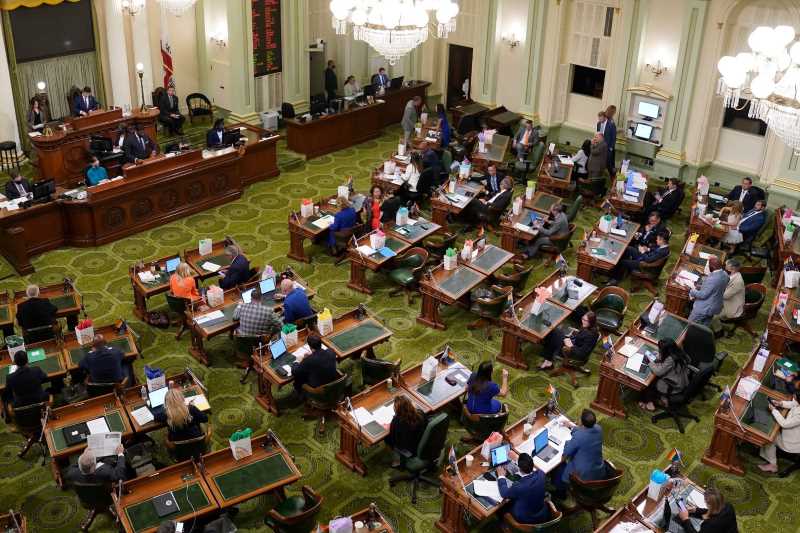Markets
California’s Divestment Bill Falters Again Amidst Legislative Disputes
A pivotal legislative effort in California to compel the state’s largest pension funds to divest approximately $15 billion from oil and gas assets has encountered a significant setback for the third consecutive year. State Senator Lena Gonzalez, the bill’s proponent, withdrew the proposal this week after facing resistance from a key legislative committee. Despite this setback, Gonzalez remains resolute, vowing to reintroduce the bill next year with an expanded coalition of climate activists.
Senator Gonzalez’s Next Move: A Stronger Coalition and Renewed Effort
In an interview, Senator Gonzalez, a Democrat representing Los Angeles County and Majority Leader of the California Senate, expressed her determination to reintroduce the bill in the next legislative session. She emphasized plans to build a more robust alliance of supporters to bolster the legislation’s chances of success.
“We anticipate forming a more extensive alliance,” remarked Gonzalez. “Our approach will be more unified, with a broader array of supporters.”
Internal Divisions Highlighted: Climate Goals vs. Financial Stability
Gonzalez’s proposal has revealed deep divisions within California’s Democratic supermajority, underscoring a conflict between climate change imperatives and concerns over potential financial risks. Previous attempts to pass similar legislation faltered despite clearing the state Senate last year.
Gonzalez’s proposal highlights rifts in California’s Democratic supermajority over balancing climate urgency with economic risks, Barron’s Print Edition said.

JPMorgan Forecasts Strong US Stock Market in 2024
JPMorgan Chase & Co.’s asset management division anticipates that a historically strong start to the year for the US stock market…
Details of the Proposed Legislation and Committee Resistance
Assemblymember Tina McKinnor, chair of the Committee on Public Employment and Retirement, proposed amendments to dilute the bill’s impact. These include extending the divestment timeline to 2045 and suggesting other revisions. The bill mandates Calpers and Calstrs to halt new investments in oil and gas companies by next year. It also requires complete divestment from the sector by 2031. Gonzalez reported these developments concerning the legislative changes.
Responses and Concerns from Key Stakeholders
Neither McKinnor’s office nor Calpers responded immediately to requests for comments on the matter. A spokesperson for Calpers emphasized efforts to cut carbon emissions, totaling $504 billion, and plans to boost green investments by $50 billion by 2030. Calstrs, managing around $338 billion, voiced worries that divestment might increase portfolio risks. They argued for using their holdings to push for climate reforms within energy companies.
Financial Implications and Opposition Concerns
Gonzalez’s legislation aimed to require Calpers and Calstrs to divest about $15 billion in assets. According to analysis, opponents feared a “fire sale” scenario, forcing pension funds into selling assets at a loss.
As the debate continues, the fate of California ambitious divestment initiative remains uncertain, illustrating the ongoing tension between environmental priorities and economic pragmatism within the state legislature.
Subscribe today for a 2-year bundle of The New York Times and The Economist. Enjoy unlimited access to NYTimes news, cooking, mini crossword, Economist e-paper, and insights from economists Paul Krugman and Joseph Stiglitz. Save 77% off – join now!

